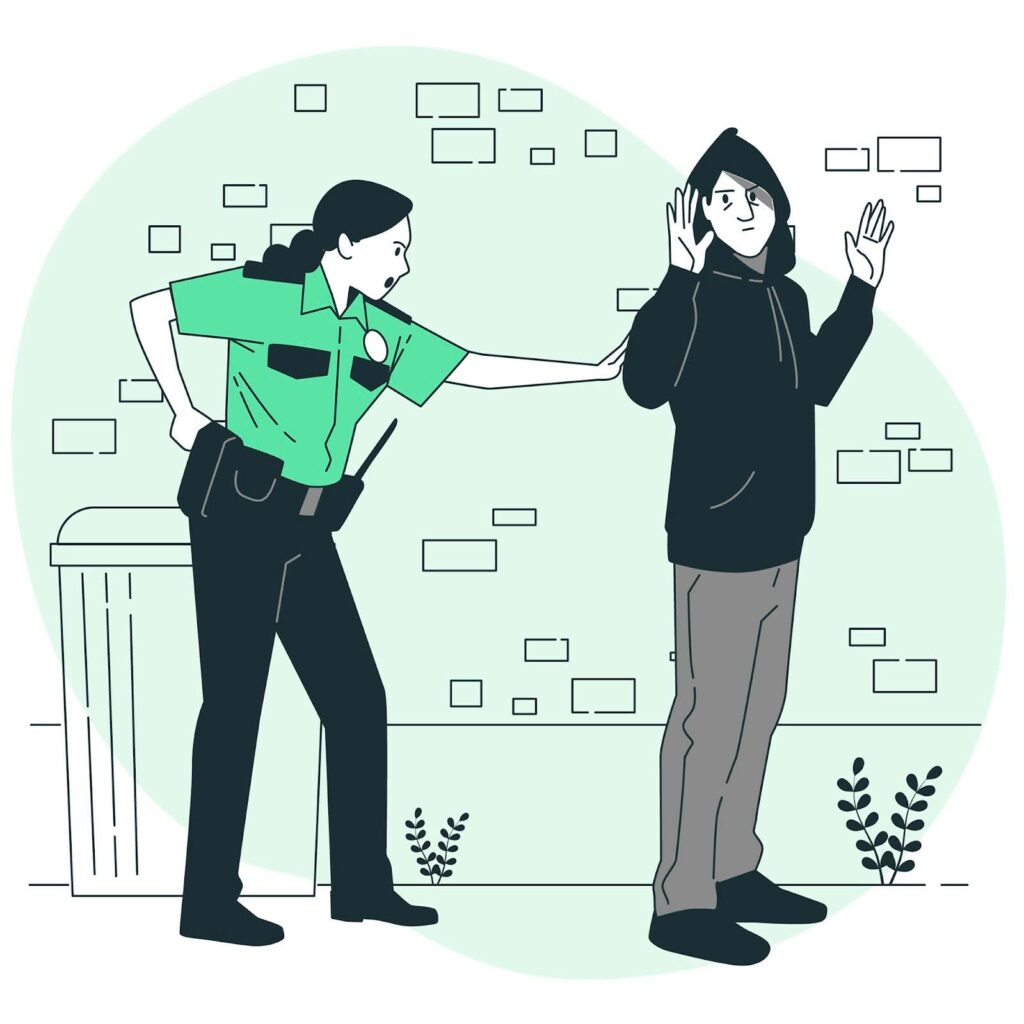It is the duty of law enforcement officers to look for evidence of criminal activity, seize that evidence for analysis, and use it as evidence in court. We call this procedure “search and seizure.”
This is why both the California Constitution’s Article I, Section 13 and the Fourth Amendment of the United States Constitution forbid “unreasonable search and seizure.” It can be difficult to determine what a reasonable or unreasonable search is, but we’ll simplify it in this post.

In California, rules pertaining to search and seizure are crucial for safeguarding people’s rights from unapproved government access. The Fourth Amendment of the United States Constitution, which protects people against arbitrary searches and seizures by law enforcement, serves as the foundation for these statutes. To better understand your rights and responsibilities, let’s examine the intricacies of California’s laws pertaining to searches and seizures.
Overview of California Search and Seizure Laws
In criminal law, a search and seizure occurs when law enforcement officers look through someone’s belongings, vehicle, or place of business in an attempt to locate evidence of a crime. California’s search and seizure laws are designed to balance law enforcement’s authority to investigate crimes with individuals’ privacy rights.
Officers can legally check all or part of a person’s belongings in the hopes of finding particular objects connected to a possible crime. It’s referred to as a seizure when police uncover objects connected to the crime and seize them. The purpose of this procedure is to collect data to aid in criminal investigations.
In order for these searches and seizures to be lawful, officers must generally obtain a warrant based on probable cause, unless an exception applies.
Warrants and Probable Cause
Unless an exception exists, most non-consensual searches in California require a search warrant. A judge or magistrate must find probable cause—a reasonable suspicion that a criminal has been committed or that there is evidence of a crime in the area that needs to be searched—before issuing a warrant. The judge must receive precise information from law enforcement officials describing the location to be searched and the objects or evidence to be seized.
Exceptions to the Warrant Requirement
Although warrants are usually necessary, there are a few exceptions that let police officers carry out searches in certain situations without one. Typical exclusions include the following:
- Consent: A warrant may not be required if a person freely gives their assent to a search.
- Exigent Circumstances: Police may search a location without a warrant if there is an imminent threat to public safety, a possibility that evidence will be destroyed, or a suspect is escaping.
- Plain View Doctrine: This states that evidence or contraband may be taken without a warrant if it is in plain view of an officer who is there legally.
- Search Incident to Arrest: After a valid arrest, officers have the right to search the subject and their immediate surroundings.
- Vehicle Searches: In some situations, such as during a traffic stop with probable cause, vehicles may be searched without a warrant.
Know Your Rights During A Search and Seizure
Knowing your rights is crucial if you come across law enforcement carrying out a search or seizure. If law enforcement approaches you:
- Keep Your Cool: Be cooperative and calm, but respectfully assert your rights.
- Request a Warrant: If police are searching without a warrant, kindly inquire as to the reason for the operation.
- Do Not Resist: Refrain from physically resisting the search, even if you think it is illegal. Any issues can be resolved later by taking legal action.
- Record the Interaction: If you can, document the exchange or make notes about everything that happens while the search is underway.
Challenging Unlawful Searches and Seizures
If you believe you’ve been subjected to unlawful search and seizure, there are ways to challenge it with the help of a criminal defense lawyer. Your lawyer can file a “motion to suppress” before your trial, arguing why the search and seizure were illegal under California law. If the judge agrees, any evidence obtained from the unlawful search cannot be used by the state in court, which may lead to reduced charges or even dismissal of the case due to lack of evidence.
Your criminal lawyer will thoroughly examine how the police obtained the evidence against you. If they determine that it was obtained illegally through an unlawful search or seizure, they will challenge its admissibility in court. Successfully challenging the legality of evidence may prevent the need for a trial altogether.
You have the right to contest the action’s legality in court if you think a search or seizure violated your rights. Seek legal counsel from an experienced criminal defense or civil rights attorney to learn about your options and pursue compensation for any infractions.
When people are aware of California’s rules regarding searches and seizures, they can better defend their constitutional rights when dealing with law enforcement. Understanding your rights and obligations will help you deal with law enforcement in a confident manner and make sure that searches and seizures are carried out in a polite and legal manner.
